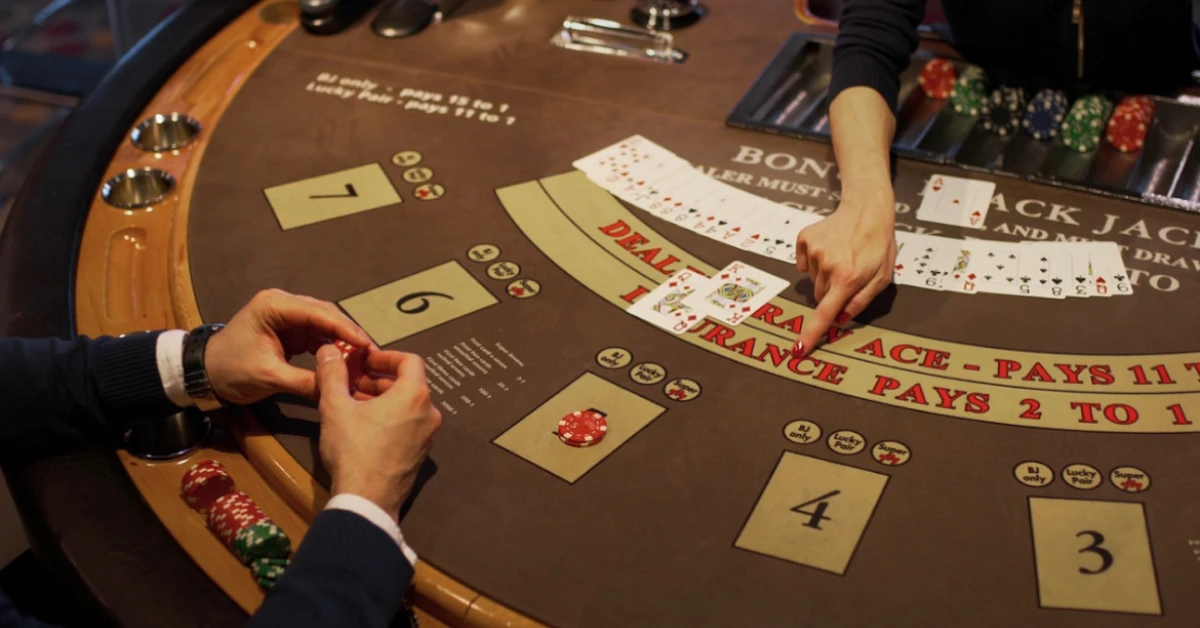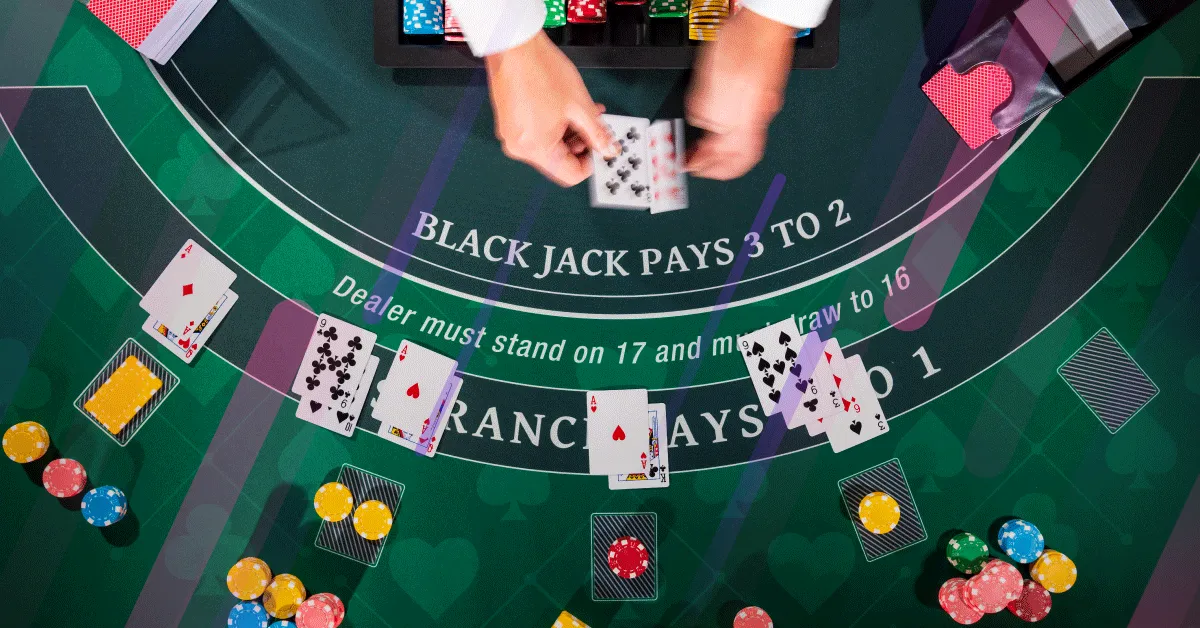Roulette Odds and Payouts: Everything You Need to Know
_1200x273.webp)
_1200x273.webp)
1.0
Default
In casino games everywhere around the world, whether you’re playing in glitzy Monte Carlo or glittery Las Vegas, there is always one game that rules and binds them all. Of course, this is entirely relative, because if you are a poker player, you would easily say that it’s poker, whereas if you are a slot game enthusiast, you can also argue that it’s slots. But if we’re talking about a universal game – a game that everyone is familiar with and has seen in every casino worldwide and gets players going – we are referring to none other than roulette. Today, we will delve deeper into the mechanics of roulette, unraveling the intricacies of odds and payouts to empower both novice players and seasoned enthusiasts.
But first – what is it about roulette that gets players oohing and ahh-ing with excitement? The game of roulette is the quintessential casino game that has mesmerized and tantalized players with its elegant simplicity and thrilling unpredictability. But central to its allure are the odds and payouts, which dictate the potential rewards (and risks!) of each spin. So how did roulette really begin, and why is it now a trademark among first-rate casinos the world over?
As everyone knows, roulette is a classic and iconic casino game that has a rich history dating back several centuries. But it originated in 17th century France, and the word "roulette" itself means "little wheel" in French, which accurately describes the game's main feature: a spinning wheel. The game was supposedly invented in the 17th century by the French mathematician and inventor Blaise Pascal – all while he was attempting to create a perpetual motion machine.
The modern version of roulette began to take shape in the late 18th century. During the 19th century, roulette spread across Europe and eventually came to the United States. It’s worth noting that in the US, a slightly different version of the game emerged – otherwise known as American roulette - which includes an additional pocket on the wheel (the double zero) in addition to the single zero pocket that was the standard in European roulette. With this slight alteration, the house edge increased, making American roulette a little less favorable to players compared to European roulette.

Today, as it happens, roulette remains one of the most popular (and enduring!) casino games the world over, enjoyed in both land-based casinos and online gambling sites. Its simplicity - combined with the endless excitement of watching the ball spin around the wheel - continues to captivate players around the globe – and millions are ever-dazzled by its appeal.
Before we explore the realm of odds and payouts, let’s establish a foundational understanding of the game itself. You must already know by now that roulette features a spinning wheel divided into pockets with corresponding numbers, alternating between the colors of red and black. The standard version of the game has 36 numbered pockets plus a single green-colored pocket marked with a zero, which is the European roulette version, or two green pockets with zero and double zero, which is the other version, American roulette.
The mechanics of the game are relatively simple: you can place bets on where you predict the ball will land once the wheel stops spinning. Also, you have the freedom to place your bets on individual numbers, colors, groups of numbers, odd or even numbers, or particular number ranges. This broad variety of betting options gives you diverse strategies - and it adds a different level of excitement to the gameplay.
Remember that in roulette, the roulette odds refer to the probability of a particular outcome occurring. In addition, the odds are influenced by the number of pockets on the wheel and the type of bet you place. In other words, your winning odds depend on your actual bet. But with every option for betting, you have a set house edge. This house edge is determined by the kind of roulette you are playing (whether it’s the American or European version and whether it has extra 0 pockets), and the actual payout. In general, what you should keep in mind is that bets with lower odds of winning offer higher payouts, while bets with higher odds of winning often yield lower payouts.
To give you a better idea: let’s say you go for a straight bet when playing European roulette, and the probability of a win is 1 in 37. This is riskier because you are only wagering on a single, lone number out of the 37 available. However, if you go for an outside bet which covers a total of 18 numbers, your chances of getting a win is 18 in 27 - almost 50 out of 50.
But you must remember that you can always choose the kind of bet you would like to use in the end. You can basically choose as many bets as you want so you can set your risk level for every spin. For this reason, straight bets are very popular since they offer the biggest prize - but they are riskier simply because it is harder to land on a straight bet.
Inside bets are wagers placed on specific numbers (or a smaller group of numbers) within the roulette layout or table. These inside bets typically have a higher roulette odds payout - but exhibit lower odds of winning. Here are some of the more common inside bets:
Meanwhile, outside bets comprise larger groups of numbers and offer higher odds of winning but come with lower payouts compared to inside bets; they are the numbers you find on the outer portion of the roulette table layout. The rates with outside bets are lower and you can expect to win an average of 2:1. The most common outside bets include:
When it comes to payouts in roulette, they are determined by the type of bet you place and the related odds of winning. Moreover, the payout ratio represents the amount you will receive relative to your initial wager - if your bet is successful. Here’s a breakdown of common payouts in both the American and European variants:
| Roulette Payout | Roulette Bet | Odds in American Roulette | Odds in European Roulette |
| 35 to 1 | Straight bet | 2.63% | 2.7% |
| 17 to 1 | Split bet | 5.26% | 5.4% |
| 11 to 1 | Street bet | 7.89% | 8.1% |
| 8 to 1 | Corner bet (when you wager on 4 numbers) | 10.52% | 10.81% |
| 5 to 1 | Line bet (when you bet on 6 numbers) | 15.79% | 16.21% |
| 2 to 1 | Dozens, Columns | 31.58% | 32.43% |
| 1 to 1 | Red/Black, Low/High, Even/Odd (when you bet on numbers 1 to 18 or 19 to 36) | 47.37% | 48.65% |
Also, it’s important to keep other factors in mind. For instance, all the payouts come with an edge which is equal to the number of green pockets on the roulette wheel. What this means is simple: it doesn't matter which bet you choose, because the house edge will always stay the same - what matters more is the version you pick. Both the European and American versions will pay out 35 is to 1 for straight bets and 1 is to 1 for outside bets covering 18 numbers, but, as mentioned, the European variant is more favorable to players. The best option you have is to make use of a roulette odds calculator, which is 36 divided by the number of pockets covered by the wager and then subtract one, as follows:
36 / Actual Bet - 1 = Payout.
So if you bet on 3 numbers, then your payout will be 11:1 (36/3 = 12 - 1 = 11).

While everyone can agree that roulette is largely a game of chance, you can still make use of certain strategies to manage your bets and optimize your chances of winning. And know this: the European version is more advantageous to you than the American version. Here are a few other strategies to remember:
Roulette odds and payouts are the bedrock of the game, and they shape the dynamics of each spin and influence the strategies of each player. By seeking to understand the probabilities behind different bets and familiarizing yourself with payout ratios, you can approach the game with confidence and make better decisions when you are at the roulette table. Regardless if you’re drawn to the adrenaline rush of inside betting or prefer the safer and calmer waters of outside betting, roulette offers a captivating blend of chance and strategy that continues to enthrall players around the world.

August 6th, 2025
Why the Friends Slot Game Is a Must-Play for Every Fan
July 30th, 2025
13 Celebrities Who Love Playing and Winning at Blackjack
July 18th, 2025
Dana White's Net Worth: From UFC Titan to High-Stakes Gambler
July 10th, 2025
Bridge Bidding Guide: Systems, Conventions & Strategy
July 7th, 2025
Famous Celebrities and Legends Who Loved Playing Craps
June 27th, 2025
Best Online Slot Tournaments to Play Right Now
June 26th, 2025
Master European Blackjack: Rules, Strategy Charts & Winning Tips
June 19th, 2025
Blackjack Deviations – Advanced Plays for Bigger Profits
June 16th, 2025
How to Win at Bingo: Tips That Actually Work
June 9th, 2025
Top 10 Flea Markets in Connecticut You Should VisitAre you sure?
This will delete all chat history, and I will not remember what we were talking about.
✔
Todays Hot Deals